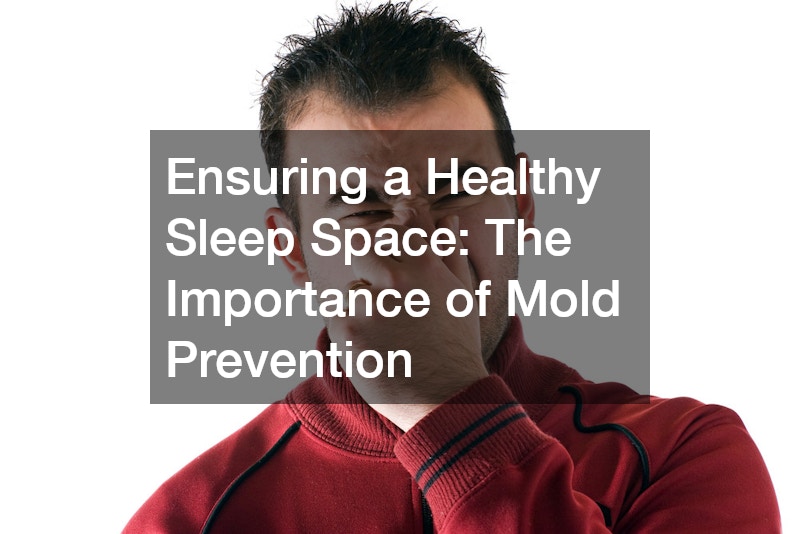In today’s fast-paced world, the impact of inadequate rest is increasingly recognized as a major concern for overall health. A lack of sleep can lead to numerous health issues, including nausea, fatigue, and impaired cognitive performance. Understanding the various factors that contribute to sleep disturbances is crucial for developing effective strategies to enhance sleep quality and, in turn, overall well-being.
Research shows that the inability to achieve restful sleep can be attributed to a variety of factors, ranging from environmental conditions to underlying health issues. Whether it’s dealing with tinnitus, managing sleep apnea, or creating an optimal sleep environment, addressing these concerns is essential. This article explores numerous approaches to improving sleep quality, emphasizing the significance of comprehensive management strategies.
By examining the role of tinnitus treatment, chiropractic care, environmental modifications, and other interventions, we can better understand how to combat the detrimental effects of lack of sleep and nausea. Let’s delve into the various methods and practices that contribute to achieving restorative sleep.
Exploring Natural Approaches to Enhance Sleep and Well-Being
Natural approaches to improve sleep quality can offer holistic benefits without the side effects associated with medication. Practices such as mindfulness, aromatherapy, and herbal supplements provide alternative avenues for those seeking to enhance their sleep and alleviate lack of sleep and nausea.
Mindfulness and meditation have been shown to reduce stress and promote relaxation, creating a mental state conducive to restful sleep. Aromatherapy, using essential oils like lavender and chamomile, is another popular method, known for its calming effects that can enhance sleep quality.
Herbal supplements, such as valerian root and melatonin, can be used to support the body’s natural sleep processes. By integrating these natural methods, individuals can create a comprehensive sleep routine that addresses both physical and mental well-being, fostering better sleep and overall health.
The Impact of Sound Management on Achieving Restful Sleep
Sound management is critical in creating a restful sleep environment, especially for those living in noisy urban areas. Managing noise levels can significantly reduce sleep disruptions and the subsequent health issues associated with lack of sleep and nausea. Techniques include the use of sound machines, earplugs, and the strategic placement of furniture.
Sound machines offer soothing background noises that can mask disruptive sounds, creating a consistent auditory environment conducive to sleep. Earplugs are a practical option for those seeking immediate noise reduction, enabling a level of control over auditory disturbances during rest.
Additionally, rearranging furniture to block noise and investing in soundproofing materials can further buffer external sounds. By implementing sound management strategies, individuals can protect their sleep environment and promote deeper, uninterrupted rest.
Enhancing Sleep Quality: The Role of Tinnitus Management

Tinnitus, often described as ringing in the ears, can significantly disrupt sleep patterns. It is a common condition that affects millions of people and can lead to a lack of sleep and nausea. Effective tinnitus treatment is essential in mitigating the impact of this condition on sleep quality.
Many individuals experiencing tinnitus find that sound therapies, such as white noise machines, can help mask the ringing, making it easier to fall asleep. Cognitive behavioral therapy is also a recommended approach, providing coping mechanisms to manage the distress associated with tinnitus. This multifaceted treatment plan can significantly improve sleep outcomes.
Consulting with healthcare professionals who specialize in tinnitus treatment can offer personalized recommendations tailored to individual needs. By addressing tinnitus effectively, individuals can reduce its negative impact on sleep and subsequently improve their overall health and quality of life.
How Chiropractic Care Can Support Better Sleep Hygiene

Chiropractic care is increasingly recognized for its role in promoting better sleep hygiene. Local chiropractors offer services that align the spine and alleviate tension, reducing discomfort and improving sleep quality. When the body is free from pain, restful sleep becomes more attainable.
Chiropractors often emphasize the importance of a holistic approach to sleep hygiene, encouraging practices such as regular exercise, stress management, and posture correction. These practices help alleviate muscle tension, potentially eliminating one of the causes of insomnia. Achieving optimal spinal alignment through chiropractic adjustments can thus enhance restfulness and counteract the lack of sleep and nausea.
Visiting local chiropractors for regular adjustments may offer significant relief for those experiencing disrupted sleep due to musculoskeletal issues. This non-invasive treatment represents a valuable component of a comprehensive strategy for better sleep and overall well-being.
Improving Rest: Insights from Sleep Apnea Treatments
Sleep apnea is a prevalent disorder that causes interrupted breathing during sleep, leading to poor sleep quality and increased health risks. The lack of restorative sleep can contribute to symptoms such as daytime fatigue and nausea, highlighting the importance of effective sleep apnea treatments.
CPAP (Continuous Positive Airway Pressure) therapy is a widely adopted solution, providing a steady flow of air to keep the airways open during sleep. This treatment significantly improves breathing patterns and overall sleep quality. Other interventions, such as mandibular advancement devices, offer alternative solutions for those unable to tolerate CPAP.
Consultation with healthcare providers specializing in sleep disorders can help individuals identify the most suitable sleep apnea treatment for their needs. By addressing this disorder, individuals can reduce their exposure to sleep-related health issues, such as lack of sleep and nausea.
Creating a Calming Bedroom Environment with Effective Shades
The environment in which we sleep plays a crucial role in achieving restorative rest. One simple yet effective modification is the use of interior and exterior shades to control light exposure. Minimizing light intrusion can help regulate circadian rhythms, promoting deeper and more consistent sleep.
Interior and exterior shades offer the advantage of controlling not only light but also noise and temperature, each of which can significantly impact sleep quality. By maintaining a tranquil and temperate sleep environment, individuals can reduce disturbances and support better rest. This adjustment can lessen the effects of sleep deprivation, such as nausea and cognitive decline.
Investing in high-quality shades provides a cost-effective solution to enhance sleep conditions. By creating an optimal environment, individuals can experience improved sleep and overall well-being, thereby addressing the lack of sleep and nausea effectively.
Ensuring a Healthy Sleep Space: The Importance of Mold Prevention

A healthy sleep environment is pivotal for uninterrupted rest and overall health. Mold presence in the sleep space can exacerbate respiratory problems, cause allergies, and disrupt sleep patterns, contributing to a lack of sleep and nausea. Mold prevention entails proactive measures and regular inspections by local mold remediation companies.
Effective mold prevention strategies include maintaining proper humidity levels, ensuring adequate ventilation, and addressing any water damage promptly. Regularly consulting with local mold remediation companies can provide professional evaluations and interventions to protect your home environment from mold-related issues.
By focusing on mold prevention, individuals can maintain a clean and healthy sleep space that supports restful sleep. A mold-free environment is essential to improving sleep quality and ensuring overall well-being, reducing the risk of sleep-related health problems.
Breathe Easier: How Clean Ventilation Supports Restful Sleep

Clean ventilation plays a vital role in achieving a comfortable and healthy sleep environment. A well-maintained ventilation system ensures the circulation of fresh air, reducing irritants and allergens that can disrupt sleep. Engaging a professional ventilation cleaning service helps maintain air quality, promoting restful slumber.
Good indoor air quality is essential for minimizing the irritation of airways, thus preventing conditions like nasal congestion and chronic coughing that can disturb sleep. Regular cleaning and maintenance of HVAC systems and air ducts ensure that dust and allergens are effectively removed, alleviating symptoms such as headaches and nausea.
Scheduled services from a ventilation cleaning service can substantially improve air quality in homes, thereby fostering conditions conducive to restorative sleep. Clean air is a fundamental component of enhancing sleep quality and overall health, addressing the all-too-common issues of lack of sleep and nausea.
The Benefits of Air Duct Maintenance for a Healthy Sleep Environment
Regular air duct maintenance is key to sustaining a clean sleep environment by preventing the accumulation of dust, allergens, and mold. Local air duct cleaning professionals offer services that enhance air circulation and quality, critical factors for achieving restful sleep and reducing health risks associated with airborne contaminants.
A poorly maintained air duct can lead to the recirculation of allergens and pollutants, aggravating respiratory issues and leading to disturbed sleep patterns. By investing in regular cleaning, individuals can prevent potential health issues linked to poor indoor air quality, such as allergies and respiratory infections, which can exacerbate lack of sleep and nausea.
The involvement of local air duct cleaning services ensures that the air we breathe within our homes is fresh and clean, directly impacting the quality of sleep. Enhanced air circulation aids in keeping a sleep environment healthy, thus supporting overall wellness and better rest.
Optimizing HVAC Services for Improved Sleep Conditions
HVAC services are integral to creating and maintaining a conducive sleep environment. A properly functioning HVAC system helps regulate temperature and humidity, both crucial for ensuring an optimal rest environment. By scheduling regular maintenance and check-ups, individuals can ensure their systems are running efficiently, contributing to better sleep quality.
Temperature fluctuations can severely disrupt sleep patterns, making climate control through HVAC systems essential. Regular service checks can prevent malfunctions that could lead to uncomfortable sleep conditions, such as excessive heat or cold, both of which can cause discomfort and exacerbate lack of sleep and nausea.
By partnering with local HVAC service providers, individuals can proactively manage their home environment, ensuring that temperature and air quality are conducive to restful sleep. This proactive approach leads to a more comfortable sleeping experience and mitigates the impact of sleep-related health issues.
Creating a Pest-Free Sleep Zone for Uninterrupted Rest
Pest management is an often-overlooked aspect of sleep hygiene that plays a significant role in maintaining a healthy sleep environment. The presence of pests in the sleeping area can lead to stress and anxiety, disrupting sleep patterns and exacerbating the effects of lack of sleep and nausea. Maintaining a pest-free bedroom is crucial for ensuring uninterrupted sleep. Pests such as bedbugs and mites can cause sleep disturbances through bites and allergic reactions, leading to a lack of sleep and nausea. Effective pest control strategies involve thorough inspections and treatments by pest support services.
A proactive approach to pest management includes regular cleaning, reducing clutter, and sealing entry points to prevent infestations. Engaging pest control service providers for routine inspections and treatments ensures that any pest issues are identified and addressed before they become problematic. Creating a pest-free zone involves ongoing vigilance and professional support. By prioritizing pest management, individuals can protect their sleep environment, ensuring restful and uninterrupted rest, and thereby safeguarding their health and well-being.
Professional pest control services offer targeted solutions to address specific pest problems, using safe and effective methods. Routine checks and preventative measures, provided by pest support services, ensure that your sleep space remains free from the disturbances caused by pests. By investing in effective pest management, individuals can improve their sleep quality, reduce health risks associated with pest exposure, and achieve a healthier, more restful sleep environment. Peace of mind regarding pest control is a crucial component of comprehensive sleep hygiene practices.
Small Changes for Big Sleep Improvements: A Holistic Approach
Adopting a holistic approach to improving sleep quality can yield significant benefits, even small changes in habits and environment can lead to better rest and alleviate issues such as lack of sleep and nausea. Focusing on consistent routines, stress management, and environmental adjustments are key components of this approach.
Establishing a regular sleep schedule trains the body’s internal clock, making it easier to fall asleep and wake up naturally. Implementing relaxation techniques such as yoga and breathing exercises can also help reduce stress levels, directly enhancing sleep quality.
Environmental tweaks, like optimizing room temperature, reducing clutter, and promoting a positive sleep atmosphere, can further enhance the quality of sleep. By integrating these small yet impactful changes, individuals can experience significant improvements in their sleep quality and overall well-being.
A lack of sleep and nausea are intertwined issues that demand comprehensive management strategies. Through a combination of sound management, natural approaches, and targeted treatments for specific conditions such as tinnitus and sleep apnea, individuals can progressively enhance their sleep quality.
By addressing both the health-related and environmental factors affecting sleep, individuals can achieve a more restful and restorative state, significantly improving their overall health and well-being. From professional services provided by local chiropractors to interventions offered by ventilation cleaning services, the array of options is vast.
Embarking on this holistic journey towards better sleep constitutes a significant step forward in improving life’s quality. With the practical insights shared in this article, the path to achieving restful and rejuvenating sleep becomes more accessible and achievable.

